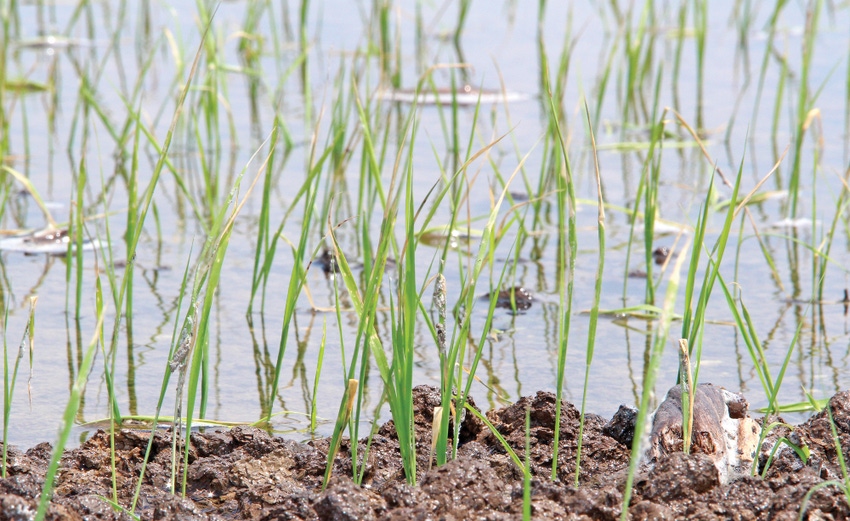June 6, 2013

It is June and we are late, so we have to make lemonade out of lemons. Experience tells us that when we roll over into June, herbicides in general just do not work as consistently — especially the rice herbicides. On emerged grass you have to drop the big hammer with treatments like Ricestar HT plus Facet, Regiment, Beyond (in Clearfield) and combinations.
With everything being late, there is a lot of frustration spraying things with sensitive crops often up all around the fields. Dr. Bob Scott added a crop sensitivity table in the back of the new MP-44 that helps determine what you can spray and cannot spray. For example, I get a lot of calls about corn because it is sensitive to Regiment, Ricestar HT and Clincher. However, it is tolerant to Grasp as is grain sorghum. Often a simple herbicide change can help a lot.
The wind blows in June in Arkansas and that is also causing a lot of frustration. A recommendation made today often does not look so good when it is delayed a week or more and that is common right now. The combination of frustration, wind and emerged crops everywhere will result in more drift. We are spraying rice herbicides, burn-down herbicides, soybean herbicides and corn herbicides all at the same time.
Everyone, please communicate, and use good judgment. Do not make assumptions about the crop being conventional or herbicide tolerant — ask!
We will have a lot more June-planted soybeans this year. In every article I stress timing of application. Pigweeds will emerge in three days and 10 days later can be too big to kill. Be mindful of the 10-month plant-back to corn, rice and grain sorghum where any form of fomesafen (Reflex, Prefix, Flexstar and generics of these) is used.
Pigweeds, drift hit Arkansas fields
A lot of herbicide applications will be made in mid- to late June this year. That can make a 10-month interval mid- to late April. There are other herbicides with plant-back intervals as well. With everything being later this year, calculate where you will be with the intended crop next year.
I will recommend a lot more Ultra Blazer for these later applications. In a lot of cases Flexstar or Prefix may have been my first choice, but carryover concerns will change the recommendation. The keys to Ultra Blazer for pigweed control are a 1.5-pint rate, seven to 10 DAE (days after emergence) timing and repeating the treatment is seven to 10 days if needed.
In a recent consultants meeting, Bob Scott said, “I continue to scratch my head over the farmers’ reluctance to plant LibertyLink soybeans.” I thought it was just me. I have never seen a technology so good that nobody seems to want to use. I will do my best to help you control weeds in whichever system you choose to plant. However, with the late planting, we are into a time our chances of timely rainfall diminish (seems odd to say given the wet spring). In warm soils, pigweeds will germinate and emerge in three days. If we have a two-week dry period during the early June planting rush it will be a dogfight in the severely infested pigweed fields. While residuals are important in a LibertyLink system (just as in the other systems), the LibertyLink system is more forgiving if the residual fails.
Ag news delivered daily to your inbox: Subscribe to Delta Farm Press Daily.
Likewise, timing of application is just as important in a LibertyLink system as it is in the other systems. However, the LibertyLink system is more forgiving if you miss the timing a few days. I get a lot of calls where I am thinking, “This situation would be much easier to solve if you had planted LibertyLink soybeans!” One drawback to acceptance has been concerns over Liberty supply. If you decide to plant them, make sure you secure the Liberty supply to spray them when you buy the seed.
You might also read:
Keith Morton - always looking for ways to do things better
Kevin Simpson: We just quietly do our own thing
Organization and technology crucial to manage 8500 acres
About the Author(s)
You May Also Like




